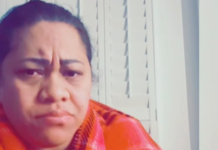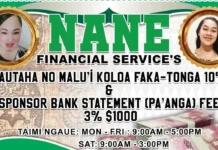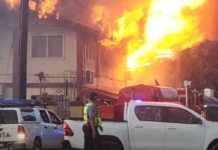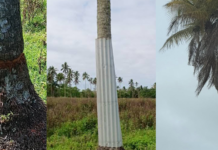EDITORIAL – The recent actions in Tonga’s Parliament are deeply troubling. Instead of fostering open debate and transparency, the Opposition appears more focused on stifling dissent.
Former Prime Minister Hu‘akavameiliku and the Chair of the Whole House Committee, Lord Tu‘ilakepa, recently criticised the Minister of Police for making allegations they claimed could ‘mislead the public.’ Hu’akavameiliku even went further and told the Minister that if he had evidence, why not take him to court?
This reasoning and argument are dangerous and threaten democracy, which demands urgent resistance.
Without immediate pushback, Parliament—the most powerful institution in the country—could further restrict MPs from freely expressing their views, known in Tongan as fakakaukau, fakaofioifi, lau, or fakamahamahalo, effectively silencing dissent under the guise of preventing misinformation.
The public, as well as politicians, have the right to freely express and form their opinions based on their emotions, understanding or intuition regarding what they observe in their society. They may then selectively use facts to support these opinions.
Allegations or fakamahamahalo
Allegations, referred to in Tongan as fakamahamahalo or mahalo, are neutral—neither true nor false until proven—but their use must be responsible. An allegation is a claim or assertion that someone has engaged in particular conduct, often used to indicate suspicion without confirmation of guilt. The term suggests there may be reasonable grounds for suspicion, but the accused has not been proven guilty.
In news writing, using the word alleged when accusing leaders is not about shielding them but about upholding fairness, legal integrity, and accurate reporting. It balances the need for accountability with the protection of rights, ensuring that accusations are investigated properly before conclusions are drawn.
While defamation laws exist to address false claims, merely raising concerns and allegations must never be criminalised. If leaders believe their critics are wrong, they should counter them with facts, not by suppressing and misrepresenting our notions of fakamahamahalo, lau, fakaofiofi, or fakakaukau (opinions or allegations).
We have just seen a press conference organised by former Prime Minister Hu‘akavameiliku to counter allegations by the Eke government regarding Lulutai Airlines. However, Hu‘akavameiliku presented largely his fakamahamahalo and opinions in the press conference.
He never presented any audited financial reports or documents from the insurance company that insured the Lulutai-leased aircraft, the Saab 340, which crashed. Nonetheless, it is his right to express his opinion, and he should refrain from doing the opposite to his critics.
Parliamentary Sovereignty
History shows that taking Tonga’s leaders to court fails to resolve systemic wrongdoing. In 2022, the Supreme Court convicted three ministers of electoral bribery, and Parliament later dismissed them, yet Hu’akavameiliku rewarded two of them with high-profile government positions. Therefore, Hu’akavameiliku’s argument that allegations should go to court before being made public is specious.
One of Tonga’s major problems is that the laws seem designed to protect leaders. If MPs are brought to court, they simply argue that the judiciary has no authority over parliamentary matters—and that’s the end of the discussion.
Eke Government Popularity
The Eke administration maintains significant public support, partly due to its persistent allegations against the preceding Hu‘akavameiliku government. The public wants the current government to address their concerns and challenge decisions that appear reckless or poorly justified.
Holding wrongdoers accountable in court was not a priority. Instead, they sought guidance to help shape their opinions and find comfort amid serious accusations.
The key issues within these allegations against the former Hu‘akavameiliku administration included an $8 million increase in ministers’ travel allowances, while only about a million dollar was allocated to support urgent poverty policies.
Lack of transparency surrounds high-risk investments in Lulutai Airlines, with the government’s estimate now at $50 million and undisclosed payments to the Pacific Games Council. Critics argue the case was legally justified in withholding financial payments to the PGC.
Most recently, the Auditor’s report revealed missing receipts and records detailing how the $60 million COVID fund was spent.
The public and politicians have the right to voice allegations and should not remain silent until a court determines their validity.







